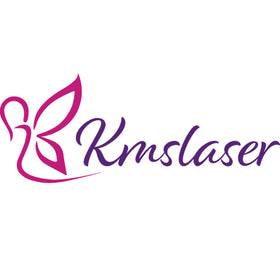Extracorporeal shock wave therapy (ESWT), also known as acoustic compression, muscle tremor, and/or shock wave therapy, has rapidly become the gold standard for the treatment of chronic, calcified, mineralized, and fibrotic tissue caused by long-term trauma. The 2015 extensive systematic review of the efficacy and safety of extracorporeal shock waves in the treatment of orthopedic disorders is probably one of the most recent and detailed reviews of the shock wave literature. Although shockwave therapy has been shown to be beneficial for fracture healing, most orthopaedic research has focused on tendinopathy, fasciopathy, and soft tissue disorders of the upper and lower extremities. The result of this review is that neither approach is better than the other. Both radial and focused shock wave devices are excellent options for the treatment of a variety of musculoskeletal disorders.
If you suffer from erectile dysfunction, leg pain or other conditions, one of the effective treatments is shockwave therapy. Shockwave therapy is also used for erectile dysfunction and may take three to six sessions to achieve the desired results. Shockwave therapy works by sending low-intensity shock waves through the body. The shock wave will be performed a certain number of times per minute so that the body is not continuously hit.
Compared to ultrasonic waves, the peak pressure of the shock wave is about 1000 times the peak pressure of the ultrasonic wave. Low-energy shock waves travel at much slower speeds and do not break the sound barrier, so a "real" shock wave does not occur. HMT OssaTron Machine) Low energy shock waves are generated by a radial pressure wave (i.e. high energy SWT or "true" shock waves are classified as short lived (approx.
Shockwaves are sound waves that have certain physical characteristics including non-linearity, high peak pressure followed by low thrust amplitude, short rise time and short duration (10ms). The shock waves stimulate fibroblasts, cells responsible for the healing of connective tissue such as tendons. The shock waves stimulate osteoblasts, the cells responsible for bone healing and new bone formation. Acoustic waves also cause the activation of mast cells, which contributes to the relief of chronic inflammation.
Sound energy stimulates more blood flow to parts of the body that benefit from the increased natural regeneration capacity of the body. Shockwave therapy uses sound waves to disrupt the transmission of pain neurotransmitters through the body, which means the sound energy works at the molecular level to change and correct the way your body interprets pain. A shock wave device used in shock wave therapy is a portable instrument that generates sound wave energy that is transmitted through the body. Whether you choose shockwave therapy at home or in a clinic, shockwave therapy is a treatment that can help you deal with many different conditions.
Shock wave therapy is a non-invasive and non-surgical treatment, which means that it does not require any penetration into body tissues or the use of an anesthetic for treatment. It should be noted that this treatment is incredibly versatile and can be used to treat many health problems in addition to chronic pain, including scar tissue, cellulitis, bursitis, and erectile dysfunction.
Extracorporeal low-intensity shock wave therapy is a safe treatment for erectile dysfunction in men and may improve or even cure erectile dysfunction in some patients. However, while Georgios Hatzichristodoulou continues to offer research-only low-intensity extracorporeal shock wave therapy and does not charge men for the treatment, healthcare providers in Europe and other countries are promoting the treatment and charging patients. Georgios Hatzichristodoulou says there are 3 placebo-controlled studies of this treatment in the world, all of which show that shockwave therapy for Peyronie's disease is effective in treating penile pain, but not penile curvature.
Specialists may refer to shock wave therapy for erectile dysfunction (ED) as Extracorporeal Low Intensity Shock Wave Therapy (LI-ESWT). Shockwaves can help stimulate recovery for a variety of joint problems. The newly developed manual control ensures safer patient treatment as you can make changes to settings without taking your eyes off the patient.

